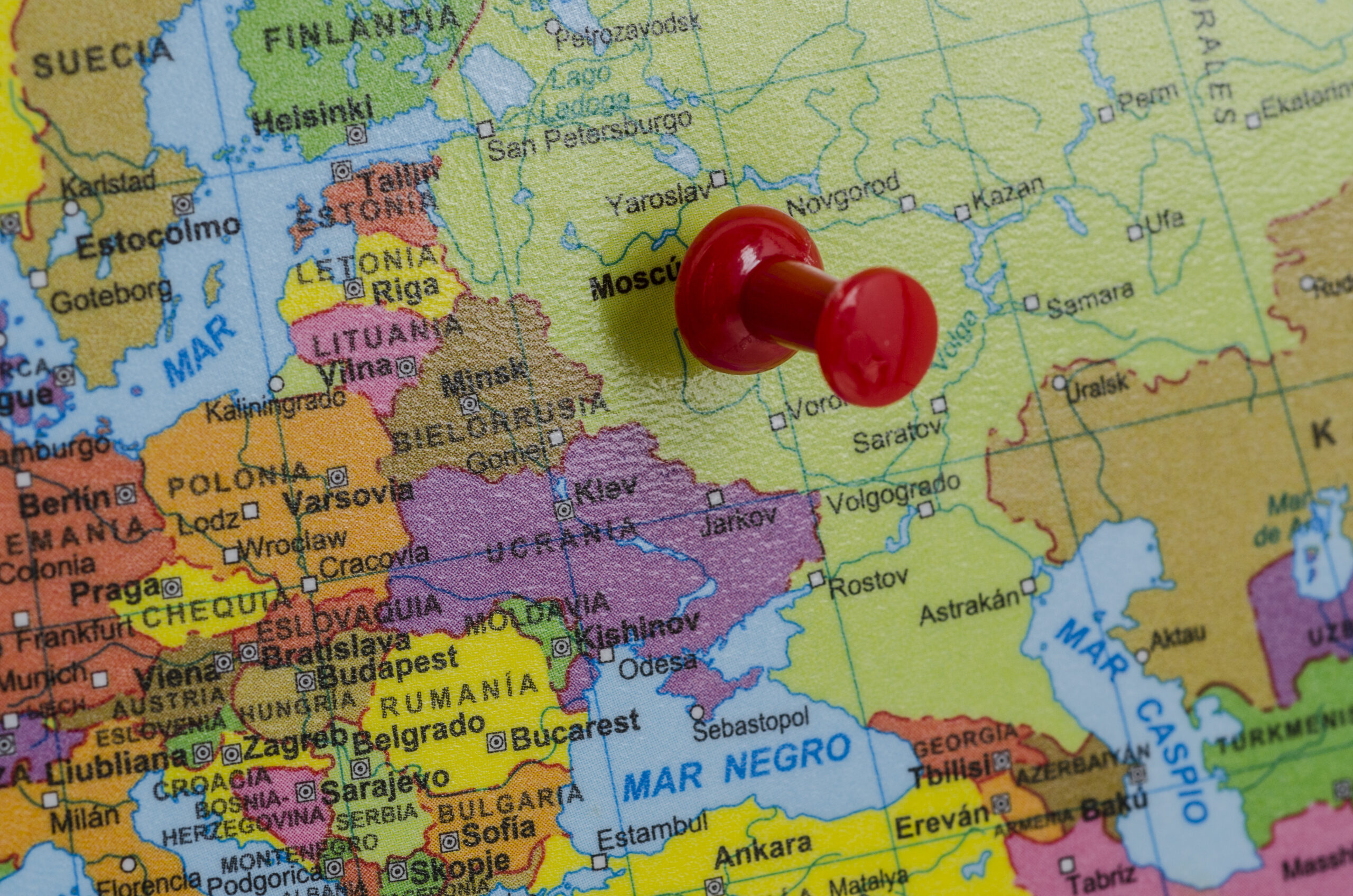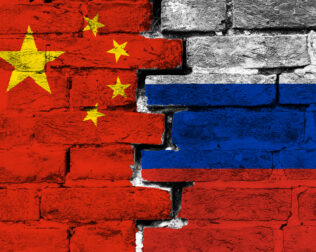By Logan Petkosek
Central Europe—given its proximity to Ukraine and membership in NATO—has been particularly vulnerable as a target for Russian information and propaganda operations in recent years. The Kremlin’s robust and interconnected information manipulation ecosystem has amplified anti-democratic measures and contributed to varying degrees of democratic backsliding in the region. As former Slovak Foreign Minister Rastislav Kacera observed ahead of September’s elections, “[propaganda] has worked hard and very successfully to exploit [Slovakia] as a wedge to divide Europe.” Though Poland, Hungary, Czechia, and Slovakia have each enacted measures to counteract these information operations, more concerted and collaborative action from governments, the private sector, and civil society is required to protect their information spaces.
Russian Information Integrity Threats
Since its full-scale invasion of Ukraine, Russia’s information operations have sought to reduce public support for military or humanitarian aid to Ukraine in key regions like Central Europe. For example, many of these malign narratives stoke sentiments that state benefits in the region are unfairly provided to refugees and prey upon fears that Central Europe will be pulled into the war.
In Poland, Ukraine’s strongest ally within the European Union (EU), Moscow’s influence campaigns focus on creating ethnic tensions between Poles and Ukrainians. As illustrated by a Warsaw Institute report, Russian narratives forward unsubstantiated claims of surging crime rates in Poland at the hands of Ukrainian refugees and outline the Polish government’s (false) plans to annex western Ukraine.
In energy-dependent Hungary, Russian narratives portray Hungary as a victim of EU sanctions and accuse the West of provoking the war in Ukraine. In Slovakia, pro-Russia sentiments and narratives focus on a “Slavic brotherhood” with Russia, which serves as a “protectorate of the pan-Slavic nation.” In Czechia, similar campaigns focus on “peace,” neutrality, and compromise with Russia, the clear aggressor in the conflict.
The effectiveness of these information campaigns has varied dramatically. On one extreme, according to a January 2023 Ipsos Report, Polish public opinion has been steadfast in its support for Ukraine both before and after the 2022 invasion. Globesec’s 2023 Trends Report shows that the Czech and Hungarian publics have also been largely resilient to Russia’s propaganda campaigns. However, the report highlights a sharp decline in support for Ukraine in Slovakia since 2022 leading to snap elections in late September that led to the return to power of Robert Fico who has vowed to stop all military aid to Ukraine.
The Response
At the onset of the war, the EU along with national governments in Central Europe, took quick measures to block Russian state-sponsored media outlets such as Russia Today and Sputnik News. Yet, these channels are just “the tip of the iceberg” for Moscow’s global influence operations. Much of this propaganda continues to be widespread on social media, exploiting individuals who have been pushed into the margins of the internet, turning to increasingly fringe sources of information.
The European Union recently passed the Digital Services Act, among the first legislation globally that strives to limit the social harms caused by largely unregulated social media platforms. The EU has also created the Central European Digital Media Observatory, a “hub” designed to respond to information manipulation and fact-checking efforts specifically in the region.
While the EU legislation is pioneering regarding content regulation on social media platforms, some critics argue the act still does not curtail Kremlin-backed (or those of other origin) information operations sufficiently. The Act emphasizes policy transparency and consistent enforcement, rather than actual policy reforms that activists had hoped for. EU programs often focus on youth digital literacy skills; however, the lack of digital literacy among vulnerable populations, such as older adults and the elderly, creates fertile ground for information and influence operations to thrive.
Central European leaders have demanded additional action. In March 2023, a coalition of eight Central and Eastern European governments (including Czechia, Slovakia, and Poland) released an open letter addressed to tech companies, calling upon them to take more action against threat actors. As the open letter states, “Big tech companies have the power to be vital allies in our common effort to tackle hostile information attacks against democracies and international rules-based order.”
All Hands on Deck
Though Russia’s malign influence has had a mixed impact, it is critical to maintain vigilance over the evolving information integrity threat. Social media and “big tech” companies, along with government and civil society groups, play a powerful role in either building or eroding democratic norms. Supporting expanded regulation on tech companies and improved media literacy efforts Central Europe—and elsewhere—should be a top priority.
For example, tech companies should be required to expand content moderation and fact-checking capacities on their platforms with a required user-to-moderator ratio in each local context. While there has been significant investment in English-language fact-checking initiatives, content in other languages, particularly “smaller” Central European languages, is extremely limited. For instance, There are just two fact-checkers for Slovak language content and one fact-checker for Hungarian language content listed on Facebook’s partner site, Agence France-Presse (AFP).
In addition to expanded content moderation, algorithms should be established to amplify accurate content from verified and trusted news sources, rather than promoting content purely based on “virality.” Such action would require a dramatic improvement in content moderation technology to assess the millions of pieces of content published on social media daily. It would also necessitate a shift away from the advertisement-based revenue model that prioritizes engagement, which would fundamentally change the tech industry.
Moreover, civil society organizations have undertaken the necessary challenge of promoting media literacy, particularly among vulnerable groups, such as seniors. These pilot efforts haven proven highly effective thus far. For example, the American non-profit organization MediaWise has shown a marked improvement in senior adults’ ability to identify false information after engaging with their media literacy course. In this example, it may be difficult to implement a training module for older citizens who are not engaged in a school system, but civil society groups can meet seniors where they already are: on Facebook. Pre-roll advertising questions required to view content can be replaced with media literacy information, such as brief quizzes or required media literacy tutorials upon signing up to the platform. Such programs could integrate media literacy into the Facebook user experience.
To limit the existential threat to the liberal democratic order posed by malign influence operations, a comprehensive approach is needed that engages private enterprise, government, and civil society. Countries in Central Europe have been hit hard by heightened Russian information operations and need collaborative solutions that both defend against these influence campaigns and better insulate their countries’ own information and media environments from such threats. Such action would allow users to engage in discourse with one another, without the harmful impact of foreign actors through malign information and influence campaigns.
This essay was conceived and developed as a special student submission. The author, Logan Petkosek, is a recent graduate from the M.S. in Foreign Service program at Georgetown University and completed a Fulbright grant in Slovakia during the 2021-2022 academic year.
The views expressed in this post represent the opinions and analysis of the author and do not necessarily reflect those of the National Endowment for Democracy or its staff. Image Credit: AnRevel/Shutterstock.






